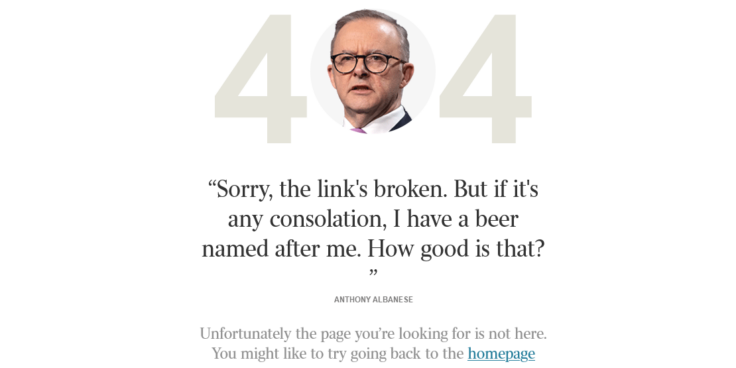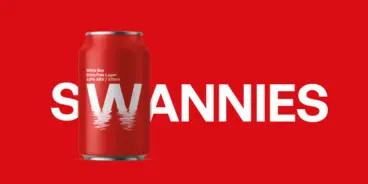
From the newswires...
News stories from around the world that have caught our editor’s eye…we read everything so you don’t have to.
Brewing industry woes go mainstream
After more than a decade of stories about the rise and rise of craft beer, the challenges facing the brewing industry have increasingly caught the attention of mainstream business journalists.
Last week Cameron England Business Editor at The Australian penned an article under the headline, “Is this the end of Australia’s craft beer explosion?”.
“Shopping for alcohol was once such a simple art,” England wrote.
“Not any more. Sliding into the beer section of your local alcohol retailer feels a bit similar to being lost in a Chemist Warehouse – a full-frontal assault on the senses with a dizzying array of choices.
“Do you want a triple hopped IPA, a hazy IPA, a hazy XPA, a face-inverting sour beer – what even is that?”
“Over the past decade or so however, the choice has exploded, with hundreds of new breweries and distillers popping up producing a huge variety of new products.
“But as with most capitalistic endeavours, everyone go a bit too excited, with former investment bankers, sports stars and the new-on-the-scene crowdfunders stampeding into a sector, which in the case of beer, was actually shrinking in terms of consumption.
“Now, with a cost of living crisis starting to bite hard – making pricey bespoke brews a less endearing choice – and more brands on the market than we ever needed, the slowdown, it seems, is upon us.”
The article is more than a little reminiscent of the stories about ostrich farming a decade ago.
This week Slate magazine also ran a long story under the headline, “When beer goes flat”.
“The suds business is in serious trouble—but it’s worse for some beers than others,” the article began.
“America has fallen out of love with beer, the story goes. Sales are down. Market share is shrinking. Spirits-based drinks are ascendant. And for breweries, a storm is coming.”
“If your brewery is very large—or, perhaps surprisingly, if it’s very small—you’ll likely find comfortable shelter from the storm coming for the beer market.
“It’s the brewers in the middle—the craft-beer makers that have a regional or national footprint, the non-Buds, the non-Millers, what you probably think of as the good beers—that could get soaked.”
These are just two of the latest in what is becoming a collage of stories about the change in trajectory for the brewing industry.
While media reports of the decline of the industry don’t make it so, many who have entered the craft brewing industry were happy to take gushingly positive coverage of the industry as truth.
These types of stories aren’t data but also shouldn’t be dismissed and should be factored into the mainstream perception of the industry and its health.
If perception isn’t reality, it can easily become it.
Another article highlighting the growing challenges that craft beer faces, this time from an industry publication, has one of the more robust industry journalists asking “Can Craft Brewing Age Gracefully?”
It’s an interesting question.
As a coincidental little sidenote to The Australian’s story, if you type an incorrect address or go to a broken link at its website, you get some whimsical 404 error message, noting that the Prime Minister has a beer named after him.
Positive impact of minimum unit process questioned
Drinks magazine drinks business reports that a Member of the Scottish Parliament, Dr Sandesh Gulhane, has written to the UK Statistics Authority calling for an investigation into a Public Health Scotland report which claimed the minimum unit pricing (MUP) for alcohol was having a “positive impact” on health outcomes.
This follows the 2018 implementation of minimum unit pricing in Scotland with “significant reductions in deaths from alcohol consumption” being reported earlier this year.
While there will certainly the perception of “of course they would report that” when a drinks industry publication like drinks business, or even this one, reports such stories, the same can be said of Governments positively reporting positively on the success of its own initiatives.
It’s always worth questioning.
The article cites Gulhane claims that “32 of the 40 studies mentioned in the report don’t cite the health outcomes of MUP, and a further seven of the other eight studies into health outcomes reached negative or inconclusive verdicts.”
“Only a single study, he claimed, said deaths might have been averted.”
Gulhane wrote: “I am concerned the report and associated publicity and ministerial statements significantly overstate the health impact of MUP, and under-represent the significant uncertainty in the wider body of research and among the scientific community.
“SNP ministers view MUP as the panacea in tackling problem drinking but none of the studies to date have backed up that theory – and neither does this one, despite their desperate spinning.”
The report comes as Ireland recently introduced world-first alcohol health labelling to alert people to calorie content, grams of alcohol, risks of cancer and liver disease and dangers of drinking while pregnant, with similar legislation being called for in Australia.
BrauBeviale and drinktec merge
Two of the brewing industry’s largest trade fairs Munich’s drinktec and Nuremburg’s BrauBeviale have merged to create a new joint venture to be called Yontex.
Both trade fairs will continue under their current names, with BrauBeviale to be held this year in Nuremberg from November 28 this year. The current cycles will also continue, with drinktec to be held in Munich every four years with the next to be held in 2025.
BrauBeviale will still be held annually in Nuremburg, except in the years drinktec is held.
“This combination will ensure the future of drinktec in Munich and BrauBeviale in Nuremberg. After all, both trade fairs want to successfully defend and extend their strong positions in the highly competitive worldwide environment,” the new entity said in a statement.




